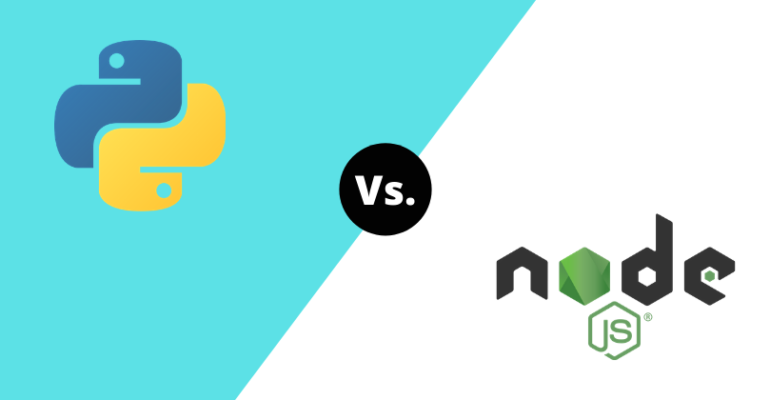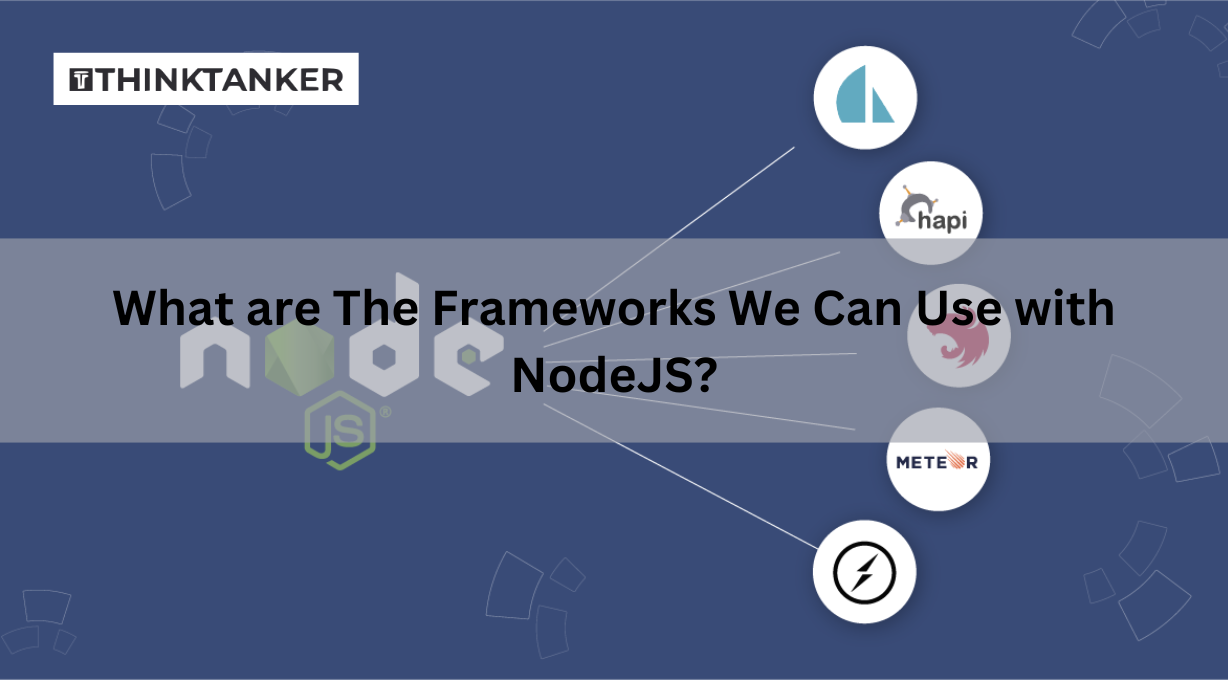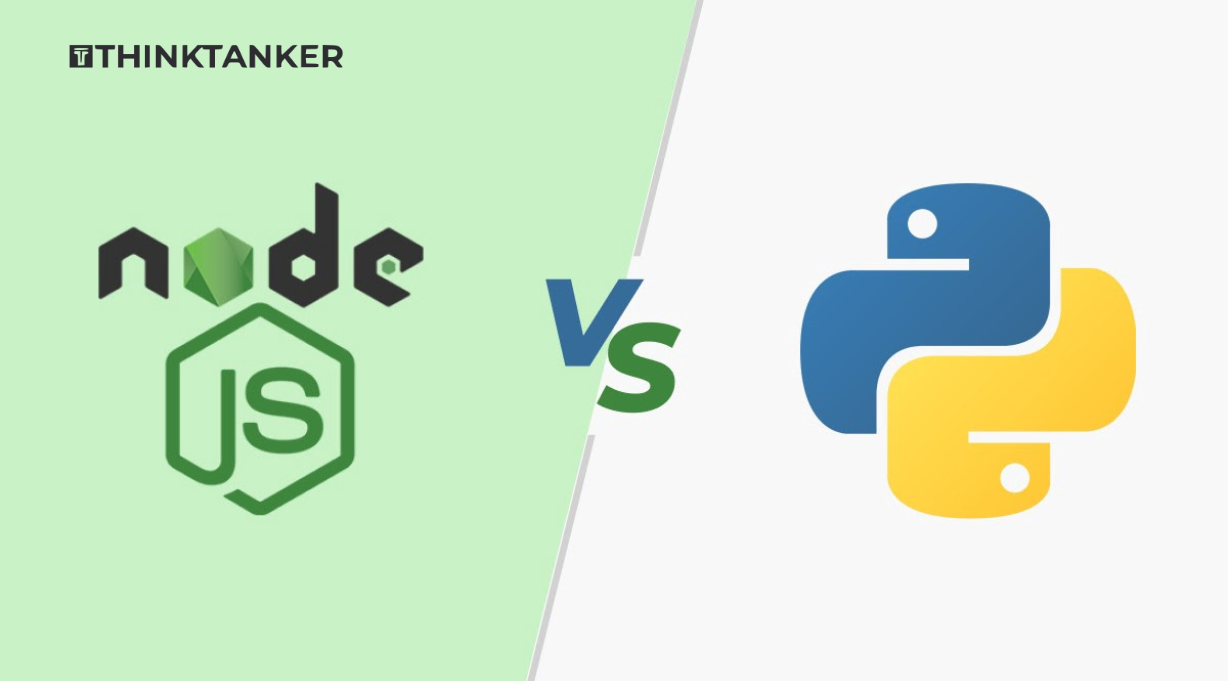Python vs. Node.js: Which is Best for your Web Application?

Python vs. Node.js: Which is Best for your Web Application?
What is Python, and when to use it?
Python is an object-oriented programming language that applications and software developers use worldwide. The language enjoys this status because it is easy to learn and use, is powered by built-in data structures, has vast libraries and frameworks, is known for accuracy, and is compatible with nearly all platforms.
Developers choose Python for application development for big businesses and handling big data, automation, and scientific developments. This high-level programming language is the first choice for complicated web projects that deal with data handling and AI with complex calculations. Since Python has many libraries, open-source analytical tools, web libraries, and instruments for testing, it has one of the largest ecosystems.
What is Node.js, and when to use it?
Node JS is an open-source server environment. It runs on Javascript based on Google’s V8 engine. Written in C++, it is a virtual machine that compiles javascript formulas into machine coding. V8 is famous for its speed and technological advancement. Developers use Node Js to invent data-driven real-time apps that run on different devices. The applications written in JS can run on widely used operating systems such as X, Linux, and Microsoft. Node JS has built-in compilers, a translator, and an optimizer to run server applications in real-time.
Node js is to run real-time projects on the web that require many factors like live chats, API, and trackers. It uses non-blocking I/O architecture like e-commerce websites that require real-time development. Many large companies like Microsoft, Paypal, Netflix, and LinkedIn use Node Js.
Python vs. Node.js: Which is Best for your Web Application?
Comparing Node.js and Python is not easy, considering both offer excellent performance and speed. Node.js is useful for heavy projects and applications that require real-time speed processing. It gives excellent performance and can manage applications based on chatting and messaging. The features of Python are easy to use, which makes this language a preferred one for scientific applications and handling big data. Python provides consistency and stability to applications. Companies hire Python developers and hire Nodejs developers based on the project’s requirements.
Let’s take a deep look at the significant areas where they are different from each other:
Read More : How Much Does it Cost to Build a Python Application?
Programming architecture
In simple terms, architecture refers to the structure of the software. Each software has a programming architecture, which determines how the software works or behaves.
Node.js: Node.js manages multiple clients with a single-threaded model. It uses fewer threads, making the work faster and easier to execute. Node.js has non-blocking I/O architecture that handles vast connections, making it perfect for real-time applications.
Python: Python works differently from Node.js as it does not convert code directly to machine code. It compiles code first; then it converts them to bytecode. This bytecode is then converted into machine code by an interpreter. Many python development services include event-driven applications also built asynchronously. It doesn’t work on multithreading.
Syntax and Libraries
Node.js: Node.js syntax is similar to javascript, so it is not difficult to understand. Node package manager (NPM) manages its libraries, the most extensive software library, and is well documented, easy to work with and fast. Hence, Node.js development companies work on NPM as it manages the full syntax and software library.
Python: Python syntax is simpler and easy for developers to code. It is easy to understand, and anyone with basic technical knowledge can read it. PIP (Pip installs Python) manages Python’s libraries, which is fast and reliable. So, Python development services work on PIP.
Scalability
Node.js: Node.js can quickly scale web apps horizontally and vertically. It does not need to create a big monolithic core. You can create modules with a lightweight mechanism to run the process. And while typing on Node.js, there are more options than with Python. You can use both javascript and typescript typing. One always recommends hiring Node.js experts for building high-performance apps.
Python: Python doesn’t enable multithreading, making it a single-thread language. Global Interpreter Lock (GIL) runs it and doesn’t allow Python to run multiple tasks simultaneously. Due to GIL, Python’s performance is affected, as it has thread-safe memory management. Python has a different, dynamic typing system unsuitable for large projects and growing businesses.
Speed
Speed is an essential parameter for any application of software development. Let’s see Node Js and Python fare on this front.
Node.js: Node.js has the edge over Python when it comes to speed and performance. Its performance is commendable since Node.js has Javascript code backed by Google’s V8 interpretation. Secondly, it executes code outside the browser. The non-blocking nature of Node.js makes it run much faster. And lastly, it allows single module caching, making Node.js a highly responsive application with reduced loading time. Companies hire Node.js experts more often when building applications for customer base websites like e-commerce portals.
Read More : 9 Tips To Make Your Node.js Web App Faster
Python: It is an interpreted programming language as it does not compile directly but through an interpreter. Because requests get carried relatively slowly as they run on a single thread, Python is not a choice for applications requiring speed and real-time work. Companies hire Python developers for building applications that don’t require real-time events.
Universality and Extensions
Node.js: Node.js is cross-platform, which means that it works on different platforms like Windows, Mac, and Linux on a single code application. So, it is universal and lowers the cost of coding again. Also, Node.js is easily extendible in many versions with tools. Node.js development companies extend Node.js to HTTP servers with the help of APIs.
Python: Python is best for websites and desktops development but is not suitable for mobile apps. But with many AI advancements, Python is growing on a universal basis and has extended in many versions. Some are the robot framework, Django, Web2py, and Flask.
Conclusion
Python and Node.js are two powerful application development tools with strengths and weaknesses. According to the application’s need, work, and purpose, one must make an informed and wise choice based on speed, architecture, scalability, syntax and libraries, easy coding, etc.





